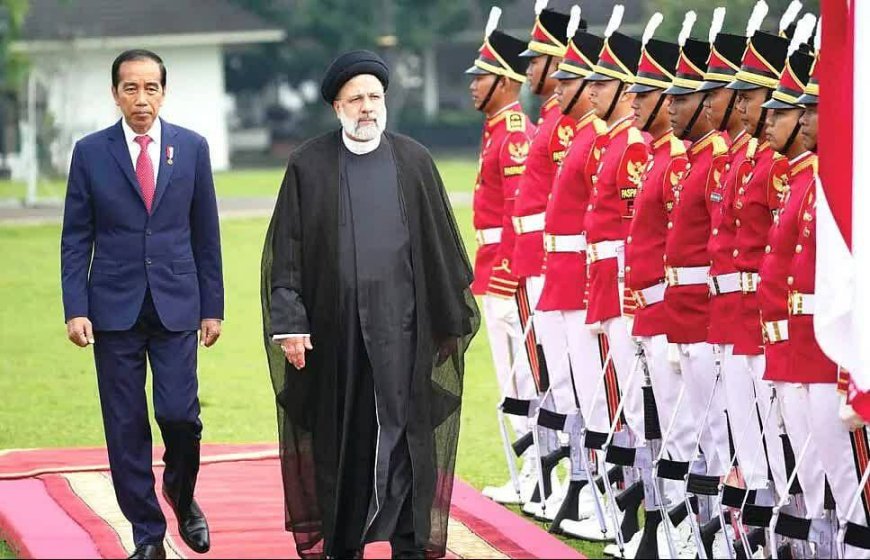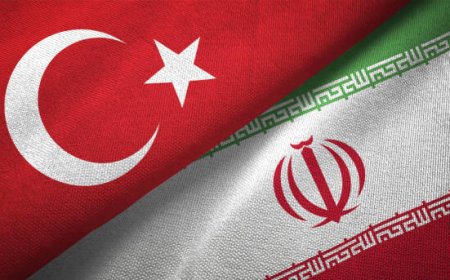Iran in the Archipelago: Iran-Indonesia alliance against US sanctions?
Iran in the Archipelago: Iran-Indonesia alliance against US sanctions?

By: A. Yeganeh
On Wednesday in Jakarta, Indonesia's President Joko Widodo welcomed his Iranian counterpart, Dr. Ebrahim Raisi,in a two-day visit that resulted in the signing of several commercial agreements. This comes amidst the heavy Western sanctions.
Tehran is developing plans to strengthen its international trade relations in order to counterbalance the economic impact of US economic terrorism. As we look at the current state of affairs, Indonesia is undoubtedly emerging as a powerhouse in the global economy. Recent studies indicate that it is poised to break into the top ten economies worldwide.
The burgeoning alliance between Iran and Indonesia holds enormous potential for the mutual advantage of the two Islamic nations. As we look at the current state of affairs, it is clear that Iran has an abundance of expertise in the fields of energy, petrochemicals, and infrastructure development. This expertise can be of great value to Indonesia as it seeks to undertake ambitious infrastructure projects and address its energy needs. In fact, by leveraging Iran's capabilities, Indonesia can potentially achieve its goals in a more efficient and effective manner.
On the other hand, Indonesia's diverse economy offers a compelling prospect for Iranian companies seeking to broaden their international reach. In a statement made on Tuesday, the President of Iran confidently declared that the recent signing of ten agreements, including trade, at the presidential Bogor Palace will not be hindered by sanctions or threats. This steadfast stance showcases Iran's determination to move forward despite any challenges that may arise. The bolstering of ties between Iran and Indonesia has the potential to propagate true Islam in Indonesia.
The introduction of severe restrictions upon religious minorities in Indonesia can be attributed to the emergence of extremist ideologies, particularly ISIS, in recent times. In light of concerns regarding the growing number of extremist ideologies, this nation has become highly sensitive to matters of religious beliefs. Therefore, the establishment of strong Iranian presence in Indonesia could potentially serve as a means of protecting the interests of the Shiite minority in the country and preventing any potential discrimination they may face.
When it comes to the field of military, Indonesia could potentially glean a multitude of insights from the Islamic Republic of Iran's four decades of invaluable experience. Amidst the backdrop of sanctions and the looming spectre of possible aggression by the Zionist regime, Iran has managed to successfully produce a range of military equipment, including submarines, surface combat ships, tanks, fighter jets, radars, and ballistic missiles. Meanwhile, Indonesia has faced significant challenges in its efforts to establish a robust domestic military industry.
It is worth noting that Iran has made major advances in the development of its ballistic missile technology, while Indonesia continues to rely on imports. Meanwhile, it appears that Indonesia is encountering obstacles in its efforts to localise the guidance system of its R-HAN 122m rockets and enhance its propellant system. Also, Iran has successfully upgraded its F-5 jets and has locally manufactured them under the name "F-5 Saeghe". The capabilities of this new aircraft outperform those of the standard F-5 type. Observers believe that by adopting Iran's model of self-sufficiency, Indonesia will be able to strengthen its domestic capabilities while minimising its dependency on outside sources.
The recent sanctions imposed by the United States on Indonesia have had a severe impact on the country's aviation industry, as Indonesia's F-16 jets have become almost unusable due to a lack of spare parts, rendering them almost inoperable. This is in stark contrast to Iran, which managed to modernise its air force despite facing similar sanctions since the Islamic Revolution in 1979. Despite being under sanctions, the Iranian experts have managed to maintain their fleet of F-14 jets by locally manufacturing spare parts. Therefore, in the event that the amicable relations between Tehran and Jakarta persist, there will be an enhancement in military cooperation that will prove advantageous for both the Indonesian and Iranian nations.
As we observe the geopolitical landscape of West Asia, it is clear that Iran's growing prominence will have significant implications for the balance of power on the international stage. Alternatively, Iran's expanding clout is likely to bolster Beijing's economic influence. It is becoming increasingly evident that China has established a unique connection with this part of the world, which is becoming an important part of its ambitious Belt and Road Initiative (BRI).
On the other hand, the United States is mobilising its allies and expanding its tentacles to counter China's influence. The AUKUS agreement is a prime example of this approach, as it enables Washington to expand its reach and confront China's initiatives in East Asia.
The participation of US allies, namely South Korea and Japan, may serve as a catalyst for Uncle Sam's sway in Indonesia. Washington's proposed strategy involves the implementation of corridor routes, which bear a resemblance to China's BRI project, all to entice Eastern Asian nations to distance themselves from Beijing. Iran's rising might in this fiercely competitive setting will undoubtedly bolster the strength of the Eastern bloc.













































